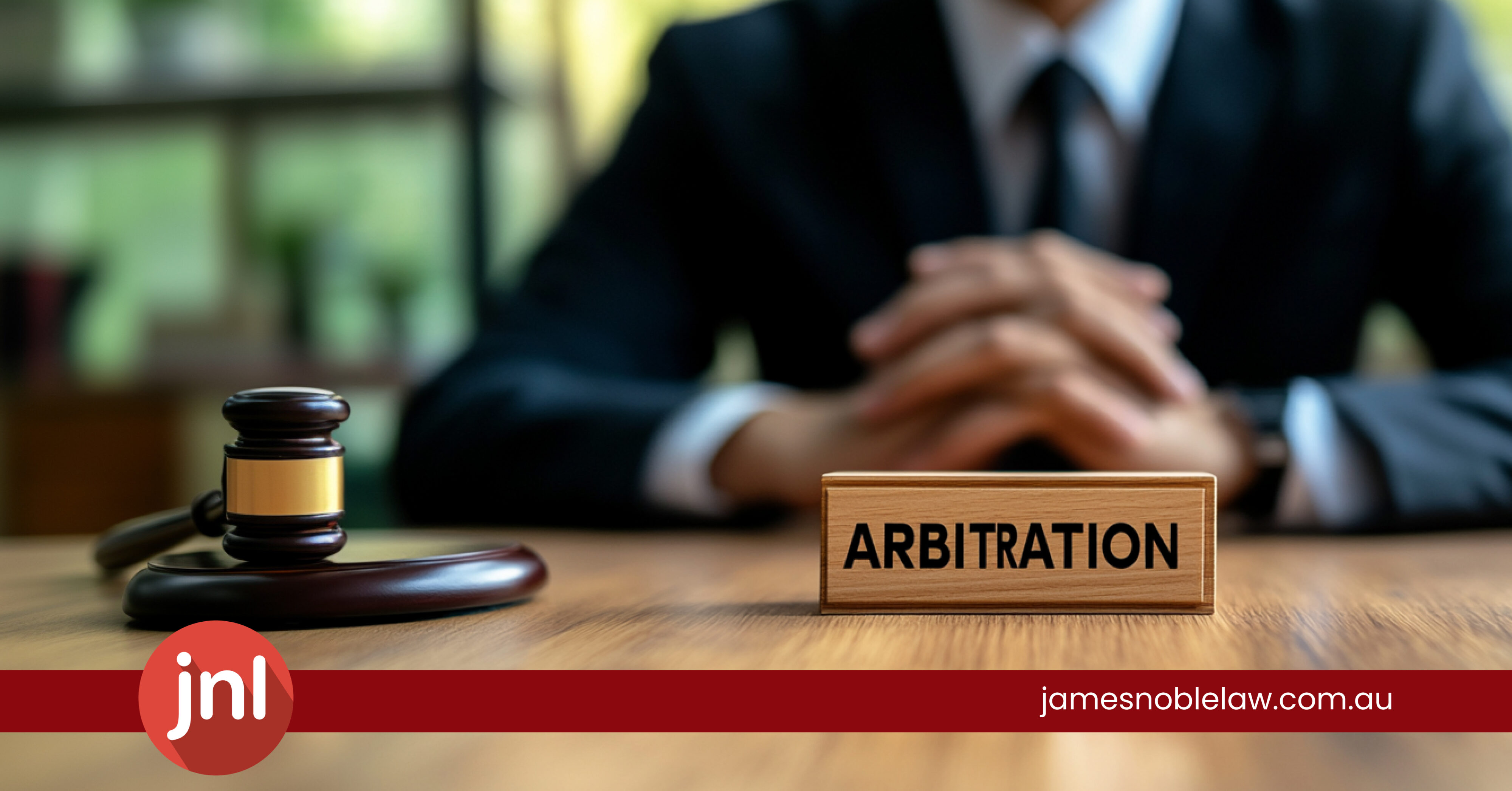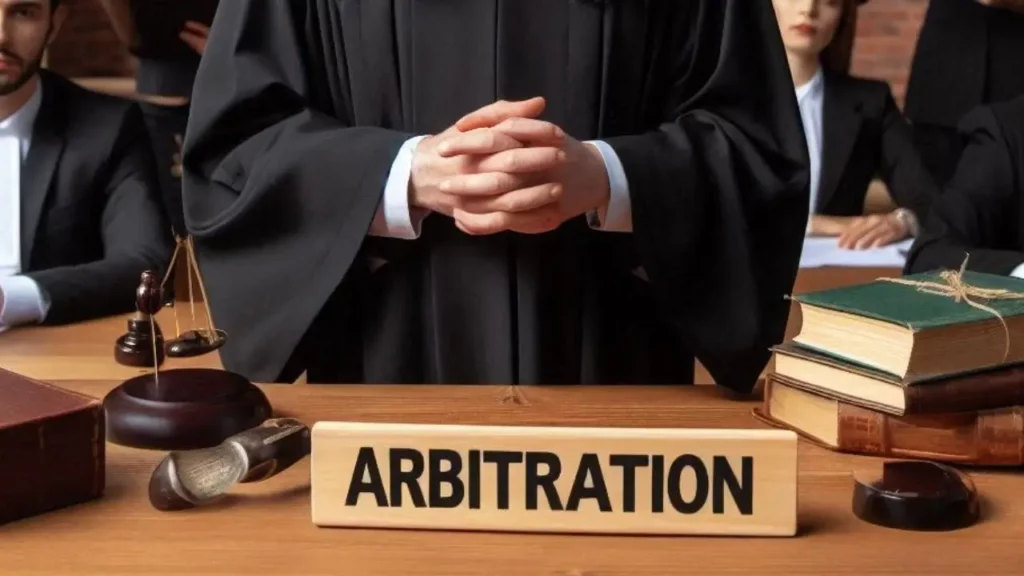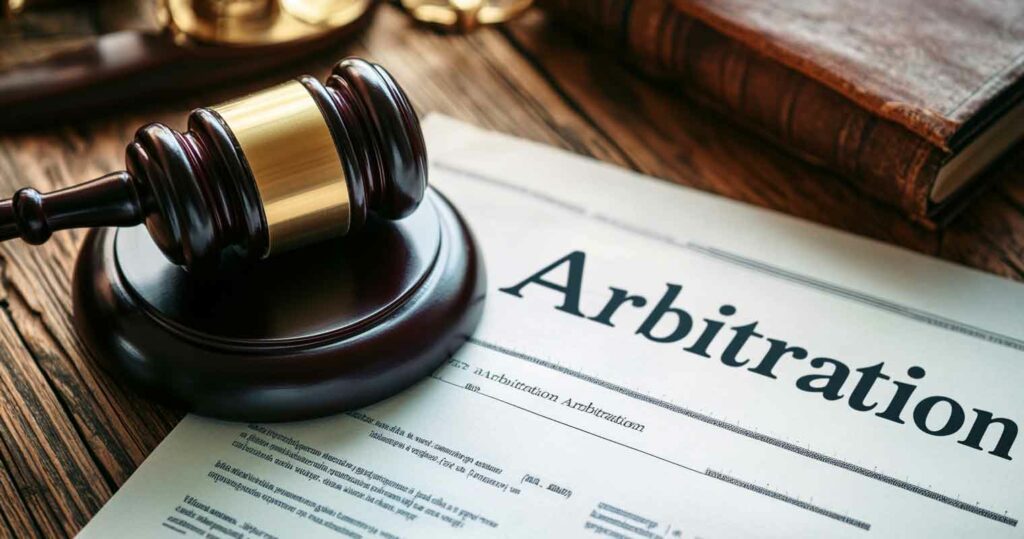
Arbitration offers an alternative pathway for resolving disputes within the framework of family law proceedings, blending efficiency and flexibility while respecting the consent of the involved parties. Under the Family Law Act 1975 (Cth), Section 13E empowers the Family Court to refer matters to arbitration with the parties’ agreement, enabling a private arbitrator to adjudicate disputes outside the courtroom. This process, grounded in consent rather than judicial compulsion, provides a unique mechanism for dispute resolution. The legislation carefully delineates the scope, enforceability, and limitations of arbitration. This article explores the legislative provisions governing arbitration referrals, recognition of arbitral awards, and the interplay between private arbitration and court enforcement under the Act.
With the consent of the parties to court proceedings, the Family Court has power to refer proceedings to arbitration for resolution.
Section 13E of the Family Law Act

1. With the consent of all of the parties to the proceedings, a court exercising jurisdiction, may make an order referring the proceedings, or any part of them, or any matter arising in them, to an arbitrator for arbitration.
2. If the court makes an order, it may, if necessary adjourn the proceedings and may make any additional orders as it thinks appropriate to facilitate the effective conduct of the arbitration.
The essential constitutional ingredient to family law arbitration is that the process is consensual. That is, where parties agree to submit their differences for decision by a third party, the arbitrator.The arbitrator does not exercise judicial power, but a power of private arbitration. This differs to the judicial power of the court that is exercised independently of the consent of the person against whom the proceedings are brought and results in a judgment or order that is binding of its own force.
In the case of private arbitration however, the arbitrator’s powers depend on the agreement of the parties, usually embodied in a contract and the arbitrator’s award is not binding of its own force. Rather, its effect, if any, depends on the law which operates with respect to it.
The making of an arbitral award is not an exercise of a judicial power as in court orders. The exercise of that authority by an arbitrator to determine the dispute submitted to arbitration for that reason lacks the essential foundation for the existence of a judicial power. It is founded on agreement as distinct from coercion.
The existence and scope of the authority to make an arbitral award is founded on the consent of each party. This would be represented in both the arbitration agreement and in a consent order referring the proceedings to arbitration.
Essentially S13E of the Act does not confer judicial power on an arbitrator. The making of an order pursuant to s 13E of the Act reflects the parties’ consent to and the court’s endorsement of arbitration as a process of determining their outstanding property dispute.
Section 13H of the Act – recognition and enforcement of an award
The second aspect of the legislative is the recognition and enforcement of arbitral awards by the Court. S13H of the Act, provides:
A party to an award made in a relevant property or financial arbitration may register the award:
- in the case of a section 13E arbitration—in the court that ordered the arbitration; or
- otherwise—in a court that has jurisdiction under the Act.
An award registered under this provision has effect as if it were a decree made by that court.
Objection to registration.
The procedures for applying for registration of an award pursuant to S13H are set out in reg 67Q of the Family Law Regulations, which permits a party to object to registration.
In addition to the capacity to object to registration,the Actpermits a party to review a registered award on questions of law.
Section 13J provides that a party to a registered award made in a section 13E arbitration or relevant property or financial arbitration may apply for review of the award, on questions of law, by:
- the Federal Circuit and Family Court of Australia (Division 2); or
- a single judge of the Family Court of a State.
On a review of an award under this section, the judge may:
- determine all questions of law arising in relation to the arbitration; and
- make such decrees as the court thinks appropriate, including a decree affirming, reversing or varying the award.
Section 13K permits a party to apply to set aside a registered award in certain circumstances.
Section 13K provides

1.If an award made in a section 13E arbitration or relevant property or financial arbitration, or an agreement made as a result of such arbitration, is registered in:
- the Federal Circuit and Family Court of Australia (Division 1); or
- the Federal Circuit and Family Court of Australia (Division 2); or
- a Family Court of a State;
the court in which the award is registered may make a decree affirming, reversing or varying the award or agreement.
2. The court may only make a decree under subsection (1) if the court is satisfied that:
- the award or agreement was obtained by fraud (including non-disclosure of a material matter); or
- the award or agreement is void, voidable or unenforceable; or
- in the circumstances that have arisen since the award or agreement was made it is impracticable for some or all of it to be carried out; or
- the arbitration was affected by bias, or there was a lack of procedural fairness in the way in which the arbitration process, as agreed between the parties and the arbitrator, was conducted.
An arbitral award is not an order made by the Court pursuant to s 79 within Pt VIII of the Family Law Act. It does not attain that characterupon it being registered. Upon registration it is recognised by the Court and is enforceable.
The High Courtconfirmed thatthe enforcement of an arbitral award by a competent court, on application, is an exercise of the judicial power of the Commonwealth. That is because the determination is always to occur in accordance with judicial process and necessarily involves a determination of questions of legal right or legal obligation at least as to the existence of, and parties to, an arbitral award. An order of the competent court determining the application on the merits then operates of its own force as a court order to create a new charter by reference to which those questions are in future to be decided as between the parties to the application. That is so for an order dismissing the application just as it is for one ordering that the arbitral award be enforced.
This statement makes clear that, under the relevant legislation, an arbitral award is recognised as binding and is enforced if and to the extent the decision is made within the scope of authority conferred on the arbitral tribunal by the parties.
It is significant that:
Both permit the ‘recognition’ or ‘registration’ of an award as a separate process to enforcement.
Both direct that an award will be recognised or registered unless an objection is raised by the person resisting its recognition or registration.
Although the Act creates a capacity for arbitral awards to be registered, they need not be. The Court does not register the award on its own motion. If a party elects to pursue registration pursuant to s 13H of the Act, they are obliged to follow the procedures set out in reg 67Q of the Regulations, which are as follows:
67Q Registration of award
- An application to register an award made in an arbitration must be in accordance with Form 8.
- The applicant must serve a copy of the application on each other party to the award.
- A party on whom an application is served may, within 28 days after service, bring to the attention of the court any reason why the award should not be registered.
- If nothing is brought to the court’s attention under subregulation (3), the court must register the award.
- If a party brings a matter to the court’s attention under subregulation (3), the court must, after giving all parties a reasonable opportunity to be heard in relation to the matter, determine whether to register the award.
The regulation makes clear that:
- An application for registration of an arbitration award can be made by one party without the consent of the other; and
- The other party may object to the registration of the award by bringing to the Court’s attention “any reason” why it should not be registered; and
- If they do not do so within 28 days of service of the application for registration, “the court must register the award”. This is not a discretionary determination, but a mandatory obligation imposed on the Court.
Each party has the opportunity to engage in the process of seeking or objecting to registration.
Neither the Act nor the Regulations prescribe any indicia that the Court must consider when determining an objection not to register an award. The Act itself does not create a capacity to object to registration. It is silent on the Court’s role in the registration process.
The act of registration is an administrative act. A challenge to registration may be brought by a party to the award raising “any reason” why the award should not be registered
An award will be registered and therefore enforceable unless the party so objecting can establish that the award was made outside the scope of authority conferred on the arbitrator by the terms of the Act, Rules and regulations, in conjunction with the terms of the arbitration agreement made between the arbitrator and the parties.
Conclusion
The referral of family law disputes to arbitration under Section 13E of the Family Law Act underscores the importance of party autonomy and procedural fairness in resolving disputes. Arbitration, while distinct from judicial determination, offers a pathway for efficient resolution, with court oversight ensuring the enforceability and legality of arbitral awards. The processes for recognition, registration, and potential review or objection to awards are designed to maintain the integrity of the arbitration system while upholding the parties’ rights. By integrating arbitration into the broader framework of family law, the legislation fosters a collaborative approach to dispute resolution.
In need of legal assistance?
Look no further! Discover top-notch Family Lawyers at James Noble Law, serving Brisbane Family Lawyers, Cairns Family Lawyers, and Milton Family Lawyers. Our skilled and qualified legal team is ready to offer you a complimentary 20-minute consultation – no obligations attached! Schedule your appointment now with our experienced Family Lawyers.
Locate:
Easily find us on Google Maps and take the first step towards resolving your legal matters with confidence.
You may also like to know more information about the


